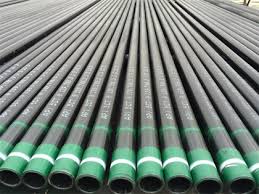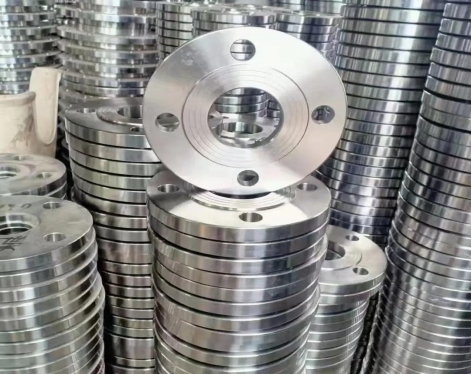Steel casing is a type of pipeline equipment commonly used in oil drilling. It is used to control the stability of the wellhead, prevent well wall collapse, prevent leakage, and repair the well body. In order to ensure the safety and reliability of steel casing during drilling construction, a series of specifications and standards need to be followed.
1. Material selection requirements for steel casing
The material selection of steel casing should be based on the stratigraphic conditions of the drilling well wall, and high-quality alloy steel pipes with tensile, compressive, bending and corrosion resistance should be given priority. Pipes must comply with national standards and provide qualified chemical composition and mechanical property test reports.
2. Outer diameter and wall thickness of steel casing
The outer diameter and wall thickness of the steel casing should meet the following requirements:
(1) The outer diameter should be able to be installed in the wellbore, with appropriate clearance left for grouting or sealing;
(2) The wall thickness should meet the strength requirements of the well wall and have sufficient pressure resistance.
3.Threaded connection of steel casing
The threaded connection of steel casing and steel casing joints is the key to ensuring the firmness of the steel casing connection. Threads should comply with relevant standard requirements and have good sealing, load-bearing capacity and anti-loosening capabilities. During the thread processing and connection process, the processing quality and connection torque need to be strictly controlled.
4. Anti-corrosion of steel casing
The steel casing must undergo anti-corrosion treatment to improve its corrosion resistance and extend its service life. Commonly used anti-corrosion methods include external anti-corrosion coating, cathodic protection and internal anti-corrosion coating. Anti-corrosion treatment should comply with relevant standards and be tested and accepted before use.
5. Steel casing installation and cementing
The installation and cementing of steel casing should be carried out in accordance with relevant specifications and procedures. During the installation process, the installation process and operating procedures need to be strictly controlled to ensure that the steel casing is correctly installed and stably fixed in the wellbore. The cementing process should be determined based on the formation conditions and drilling purposes, including grouting, plugging and filling.

6. Testing and inspection of steel casing
The testing and inspection of steel casing is an important part of ensuring the integrity and quality of steel casing. Commonly used testing and inspection methods include steel casing appearance inspection, strength testing, hardness testing, magnetic particle testing, dimensional inspection and weld quality inspection, etc. According to relevant specifications, the steel casing is comprehensively inspected and accepted to ensure that it meets the design requirements and usage requirements.
7. Maintenance and repair of steel casing
Steel casings require regular maintenance and overhaul during use to ensure their service life and safety. Maintenance work includes anti-corrosion maintenance, cleaning dirt, pressure testing and leak detection. Damaged or faulty steel casings need to be repaired or replaced in time to ensure their normal operation and use.
In short, steel casing is an indispensable and important equipment in oil drilling, and compliance with its specifications and standards is crucial to the safety and success of drilling operations. During the material selection, manufacturing, installation, testing and maintenance processes of steel casing, it is necessary to strictly follow the relevant specifications to ensure the quality and performance of the steel casing.
1. Material selection requirements for steel casing
The material selection of steel casing should be based on the stratigraphic conditions of the drilling well wall, and high-quality alloy steel pipes with tensile, compressive, bending and corrosion resistance should be given priority. Pipes must comply with national standards and provide qualified chemical composition and mechanical property test reports.
2. Outer diameter and wall thickness of steel casing
The outer diameter and wall thickness of the steel casing should meet the following requirements:
(1) The outer diameter should be able to be installed in the wellbore, with appropriate clearance left for grouting or sealing;
(2) The wall thickness should meet the strength requirements of the well wall and have sufficient pressure resistance.
3.Threaded connection of steel casing
The threaded connection of steel casing and steel casing joints is the key to ensuring the firmness of the steel casing connection. Threads should comply with relevant standard requirements and have good sealing, load-bearing capacity and anti-loosening capabilities. During the thread processing and connection process, the processing quality and connection torque need to be strictly controlled.
4. Anti-corrosion of steel casing
The steel casing must undergo anti-corrosion treatment to improve its corrosion resistance and extend its service life. Commonly used anti-corrosion methods include external anti-corrosion coating, cathodic protection and internal anti-corrosion coating. Anti-corrosion treatment should comply with relevant standards and be tested and accepted before use.
5. Steel casing installation and cementing
The installation and cementing of steel casing should be carried out in accordance with relevant specifications and procedures. During the installation process, the installation process and operating procedures need to be strictly controlled to ensure that the steel casing is correctly installed and stably fixed in the wellbore. The cementing process should be determined based on the formation conditions and drilling purposes, including grouting, plugging and filling.

6. Testing and inspection of steel casing
The testing and inspection of steel casing is an important part of ensuring the integrity and quality of steel casing. Commonly used testing and inspection methods include steel casing appearance inspection, strength testing, hardness testing, magnetic particle testing, dimensional inspection and weld quality inspection, etc. According to relevant specifications, the steel casing is comprehensively inspected and accepted to ensure that it meets the design requirements and usage requirements.
7. Maintenance and repair of steel casing
Steel casings require regular maintenance and overhaul during use to ensure their service life and safety. Maintenance work includes anti-corrosion maintenance, cleaning dirt, pressure testing and leak detection. Damaged or faulty steel casings need to be repaired or replaced in time to ensure their normal operation and use.
In short, steel casing is an indispensable and important equipment in oil drilling, and compliance with its specifications and standards is crucial to the safety and success of drilling operations. During the material selection, manufacturing, installation, testing and maintenance processes of steel casing, it is necessary to strictly follow the relevant specifications to ensure the quality and performance of the steel casing.
Previous:Common standards for steel casing









